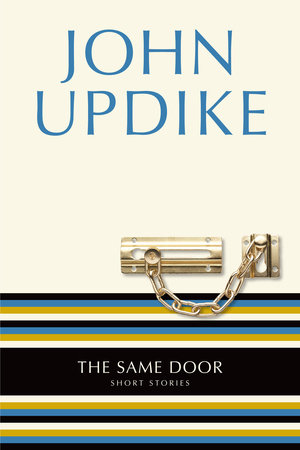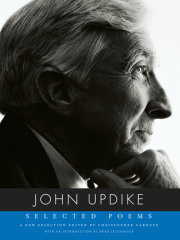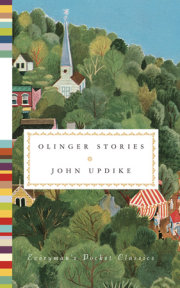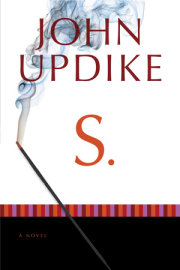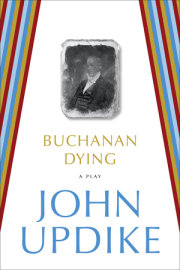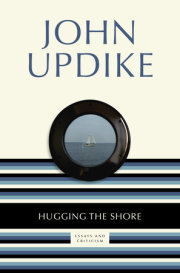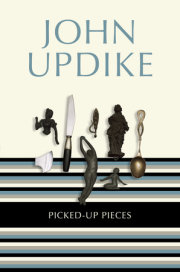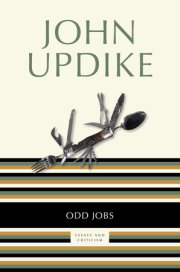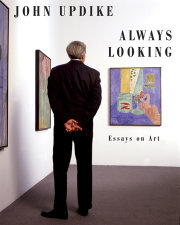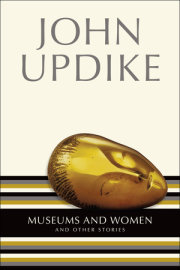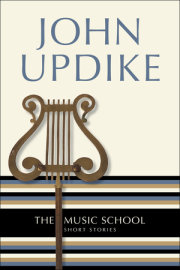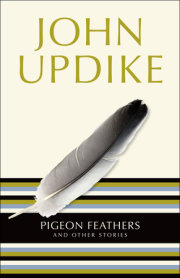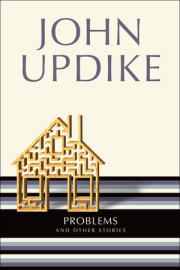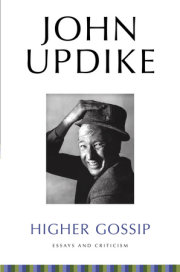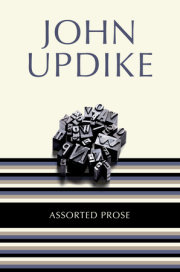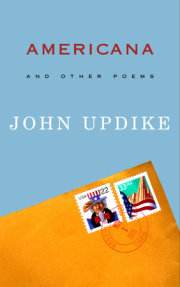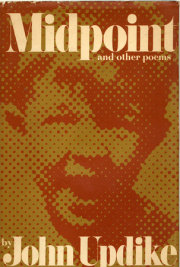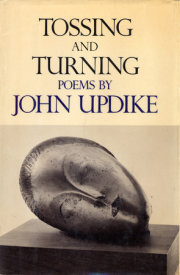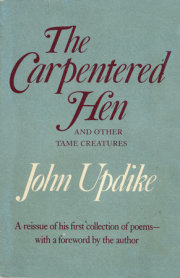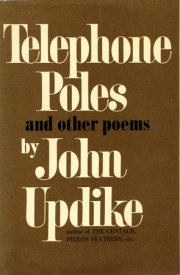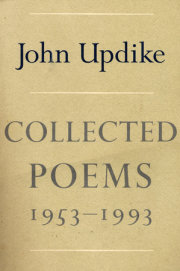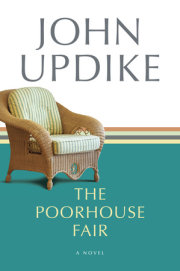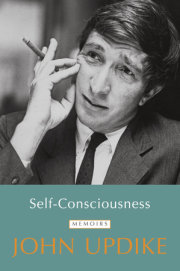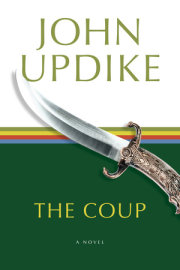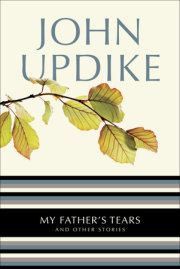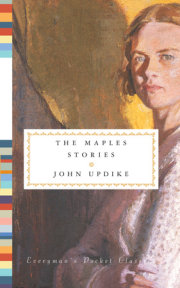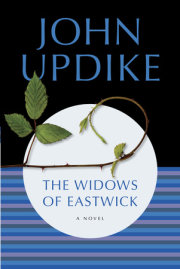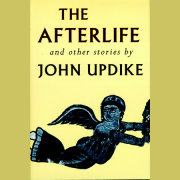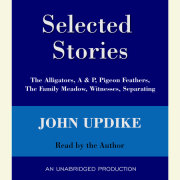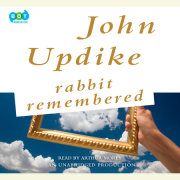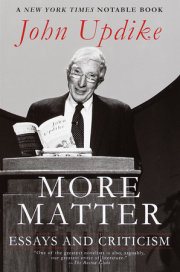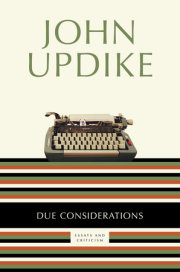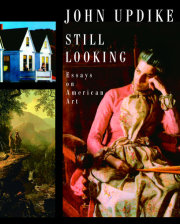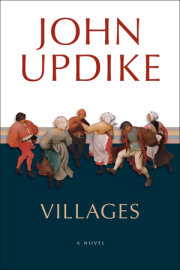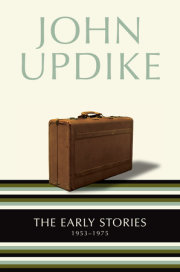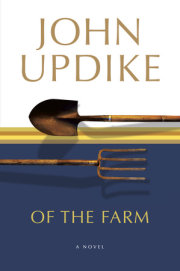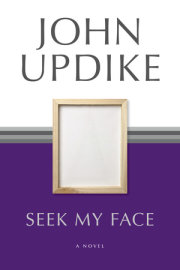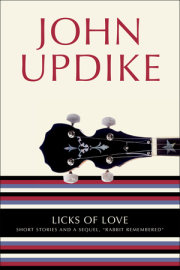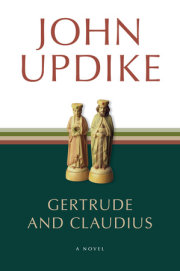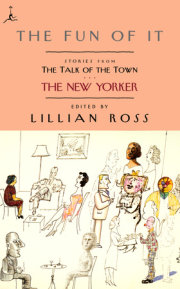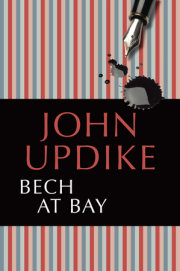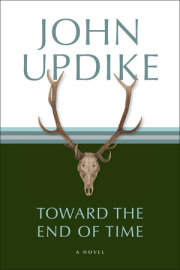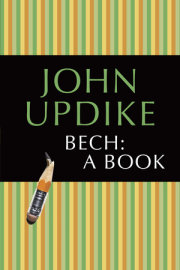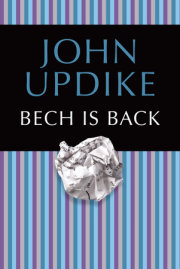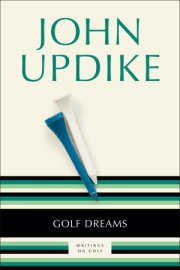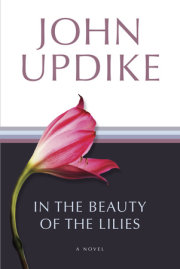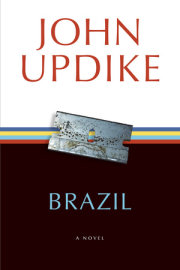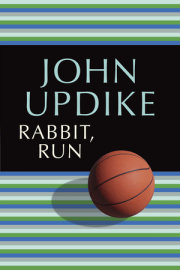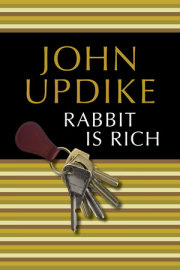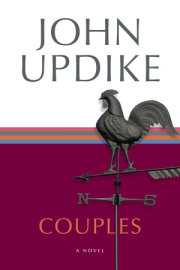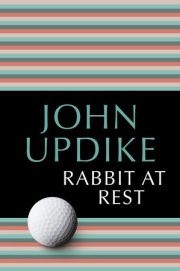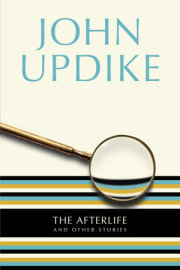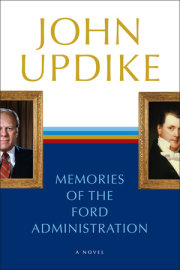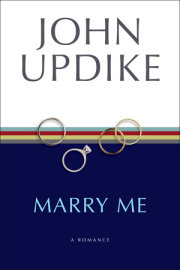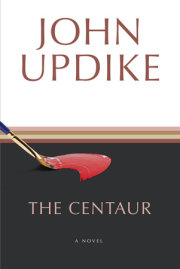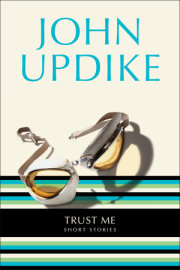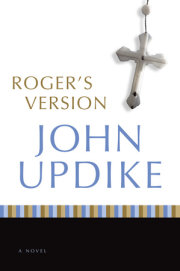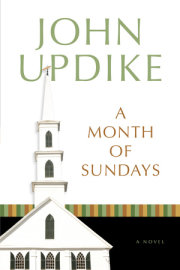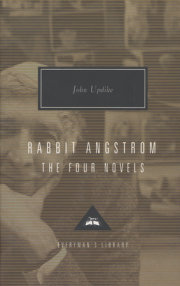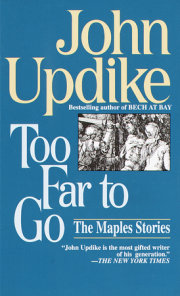Friends from Philadelphia
In the moment before the door was opened to him, he glimpsed her thigh below the half-drawn shade. Thelma was home, then. She was wearing the Camp Winniwoho T-shirt and her quite short shorts.
“Why, my goodness: Janny!” she cried. She always pronounced his name, John, to rhyme with “Ann.” Earlier that summer, she had visited New York City, and tried to talk the way she thought they talked there. “What on earth ever brings you to me at this odd hour?”
“Hello, Thel,” he said. “I hope—I guess this is a pretty bad time.” She had been plucking her eyebrows again. He wished she wouldn’t do that.
Thelma extended her arm and touched her fingers to the base of John’s neck. It wasn’t a fond gesture, just a hostesslike one. “Now, Janny. You know that I—my mother and I— are always happy to be seeing you. Mother, who do you ever guess is here at this odd hour?”
“Don’t keep John Nordholm standing there,” Mrs. Lutz said. Thelma’s mother was settled in the deep-red settee watching television and smoking. A coffee cup being used as an ashtray lay in her lap, and her dress was hitched so that her knees showed.
“Hello, Mrs. Lutz,” John said, trying not to look at her broad, pale knees. “I really hate to bother you at this odd hour.”
“I don’t see anything odd about it.” She took a deep-throated drag on her cigarette and exhaled through her nostrils, the way men do. “Some of the other kids were here earlier this afternoon.”
“I would have come in if anybody had told me.”
Thelma said, “Oh, Janny! Stop trying to make a martyr of yourself. Keep in touch, they say, if you want to keep up.”
He felt his face grow hot and knew he was blushing, which made him blush all the more. Mrs. Lutz shook a wrinkled pack of Herbert Tareytons at him. “Smoke?” she said.
“I guess not, thanks a lot.”
“You’ve stopped? It’s a bad habit. I wish I had stopped at your age. I’m not sure I’d even begun at your age.”
“No, it’s just that I have to go home soon, and my mother would smell the smoke on my breath. She can smell it even through chewing gum.”
“Why must you go home soon?” Thelma asked.
Mrs. Lutz sniffled. “I have sinus. I can’t even smell the flowers in the garden or the food on the table any more. Let the kids smoke if they want, if it makes them feel better. I don’t care. My Thelma, she can smoke right in her own home, her own living room, if she wants to. But she doesn’t seem to have the taste for it. I’m just as glad, to tell the truth.”
John hated interrupting, but it was close to five-thirty. “I have a problem,” he said.
“A problem—how gruesome,” Thelma said. “And here I thought, Mother, I was being favored with a social call.”
“Don’t talk like that,” Mrs. Lutz said.
“It’s sort of complex,” John began.
“Talk like what, Mother? Talk like what?”
“Then let me turn this off,” Mrs. Lutz said, snapping the right knob on the television set.
“Oh, Mother, and I was listening to it!” Thelma toppled into a chair, her legs flashing. When she pouted, John thought, she was delicious.
Mrs. Lutz had set herself to give sympathy. Her lap was broadened and her hands were laid palm upward in it.
“It’s not much of a problem,” John assured her. “But we’re having some people to dinner from Philadelphia.” He turned to Thelma and added, “If anything is going on tonight, I can’t get out.”
“Life is just too, too full of disappointments,” Thelma said.
“Look, is there?”
“Too, too full,” Thelma said.
Mrs. Lutz made fluttery motions out of her lap. “These Philadelphia people.”
John said, “Maybe I shouldn’t bother you about this.” He waited, but she just looked more and more patient, so he went on. “My mother wants to give them wine, and my father isn’t home from school yet. He might not get home before the liquor store closes. It’s at six, isn’t it? My mother’s busy cleaning the house, so I walked in.”
“She made you walk the whole mile? Poor thing, can’t you drive?” Mrs. Lutz asked.
“Sure I can drive. But I’m not sixteen yet.”
“You look a lot taller than fifteen.”
John looked at Thelma to see how she took that one, but Thelma was pretending to read a rented novel wrapped in cellophane.
“I walked all the way to the liquor store,” John told Mrs. Lutz, “but they wouldn’t give me anything without written permission. It was a new man.”
“Your sorrow has rent me in twain,” Thelma said, as if she was reading it from the book.
“Pay no attention, John,” Mrs. Lutz said. “Frank will be home any second. Why not wait until he comes and let him run down with you for a bottle?”
“That sounds wonderful. Thanks an awful lot, really.”
Mrs. Lutz’s hand descended upon the television knob. Some smiling man was playing the piano. John didn’t know who he was; there wasn’t any television at his house. They watched in silence until Mr. Lutz thumped on the porch outside. The empty milk bottles tinkled, as if they had been nudged. “Now, don’t be surprised if he has a bit of a load on,” Mrs. Lutz said.
Actually, he didn’t act at all drunk. He was like a happy husband in the movies. He called Thelma his little pookie-pie and kissed her on the forehead; then he called his wife his big pookie-pie and kissed her on the mouth. Then he solemnly shook John’s hand and told him how very, very happy he was to see him here and asked after his parents. “Is that goon still on television?” he said finally.
“Daddy, please pay attention to somebody else,” Thelma said, turning off the television set. “Janny wants to talk to you.”
“And I want to talk to Johnny,” Thelma’s father said. He spread his arms suddenly, clenching and unclenching his fists. He was a big man, with shaved gray hair above his ears, which were small and flat to his head. John couldn’t think of the word to begin.
Mrs. Lutz explained the errand. When she was through, Mr. Lutz said, “People from Philadelphia. I bet their name isn’t William L. Trexler, is it?”
“No. I forget their name, but it’s not that. The man is an engineer. The woman went to college with my mother.”
“Oh. College people. Then we must get them something very, very nice, I should say.”
“Daddy,” Thelma said. “Please. The store will close.”
“Tessie, you hear John. People from college. People with diplomas. And it is very nearly closing time, and who isn’t on their way?” He took John’s shoulder in one hand and Thelma’s arm in the other and hustled them through the door. “We’ll be back in one minute, Mamma,” he said.
“Drive carefully,” Mrs. Lutz said from the shadowed porch.
Mr. Lutz drove a huge blue Buick. “I never went to college,” he said, “yet I buy a new car whenever I want.” His tone wasn’t nasty, but soft and full of wonder.
“Oh, Daddy, not this again,” Thelma said, shaking her head at John, so he could understand what all she had to go through. When she looks like that, John thought, I could bite her lip until it bleeds.
“Ever driven this kind of car, John?” Mr. Lutz asked.
“No. The only thing I can drive is my parents’ Plymouth, and that not very well.”
“What year car is it?”
“I don’t know exactly.” John knew perfectly well it was a 1940 model, bought second-hand after the war. “It has a gear shift. This is automatic, isn’t it?”
“Automatic shift, fluid transmission, directional lights, the works,” Mr. Lutz said. “Now, isn’t it funny, John? Here is your father, an educated man, with an old Plymouth, yet at the same time I, who never read more than ten, twenty books in my life . . . It doesn’t seem as if there’s justice.” He slapped the fender, bent over to get into the car, straightened up abruptly, and said, “Do you want to drive it?”
Copyright © 2012 by John Updike. All rights reserved. No part of this excerpt may be reproduced or reprinted without permission in writing from the publisher.

